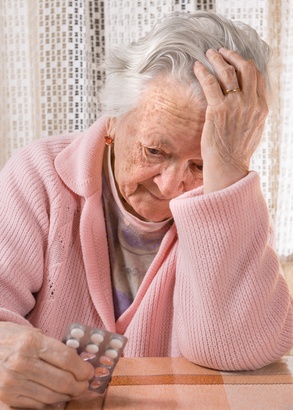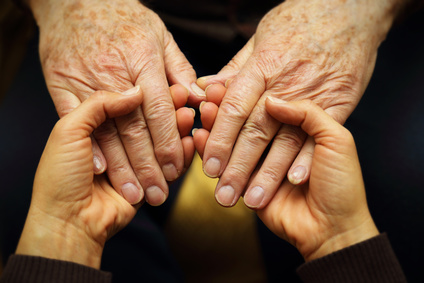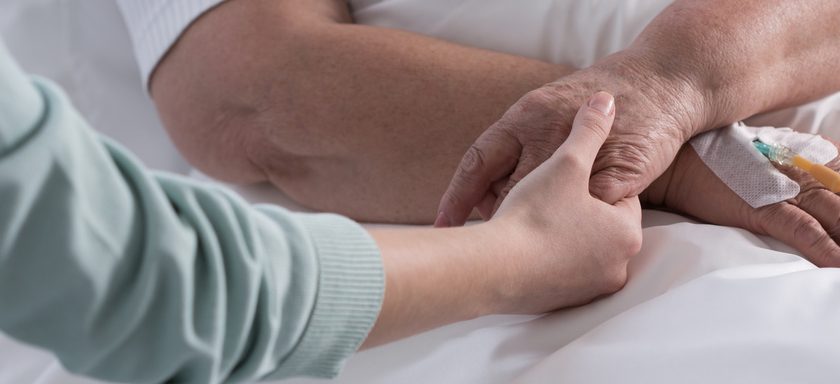Cancer is an age-related disease. Due to demographic changes and extending life expectancy, the number of persons aged 65 and older diagnosed with cancer continues to increase. Despite this, psycho-oncological research as well as care and support of older cancer patients is relatively limited. A current research project “Coping with cancer in old age” at the University of Luxembourg focuses on coping with cancer in the elderly, in order to provide first insights into the situation of older cancer patients in Luxembourg and in the Greater Region.
The occurrence of cancer is rising worldwide, and this is particularly true amongst the elderly population. These numbers are expected to continue rising in the next decades. Despite this development, however, older cancer patients are still underrepresented, and sometimes even excluded in research studies. This leads to an alarming lack of knowledge within the oncological personnel, concerning their care and treatment. In addition, older cancer patients face a number of disadvantages in medical care compared to younger cancer patients, which leads to poorer health outcomes. On top of different medical treatment approaches, psychosocial needs of older cancer patients also appear to sometimes be disregarded.
Obstacles to adequate treatment and care

Several obstacles to adequate treatment and care exist, and are not only caused by healthcare professionals, but also by the patients themselves. A study by Sifer-Rivière and colleagues (2010) found that some health care professionals seem to make a fundamental distinction between young and old cancer patients, based on the “idea that ‘elderly people have lived their lives’” (p. 65). Another study even found negatively biased attitudes in oncological healthcare professionals towards older cancer patients. These attitudes might result in a lesser degree of willingness to put effort in the treatment and care of older patients. Evidently, all this raises ethical questions concerning equal access to healthcare, since older cancer patients should, but currently don’t benefit from medical and psychosocial care and treatment in the same way as younger patients do.
Regarding obstacles created by elderly cancer patients themselves, evidence exists that they sometimes hesitate to report general but also cancer-related symptoms, which complicates their medical treatment. Older cancer patients also indicate a lesser desire to receive psychosocial support.
As a result and despite its growth, the population of older persons diagnosed with cancer is under-treated with respect to medical and psychosocial concerns.
A comprehensive research project to bridge the gap
A current psycho-oncological research project and PhD project of Juliane Lessing at the Research Unit INSIDE (University of Luxembourg) targets the specificities of having to face cancer in old age. This project supervised by Prof. Dieter Ferring aims to bridge gaps in the current knowledge, and to provide first and up-to-date insights into the situation of older cancer patients in Luxembourg and the Greater Region. The project addresses three central questions:
First, it aims to understand how a cancer diagnosis in old age affects physical and psychological well-being, social life, and financial resources and to grasp the impact of cancer in old age. For this purpose, we analysed a representative sample of older persons in Luxembourg from wave 5 of the SHARE data (Survey of Health, Ageing and Retirement; Börsch-Supan, 2015) with a focus on cancer-specific burden in older cancer patients in comparison to persons with different health conditions (i.e. persons reporting a heart attack or no chronic condition).
Secondly, the project also aims to analyse how older cancer patients are perceived by the general public, and health professionals in particular. Attitudes towards older cancer patients have a strong influence towards the way they are able to cope with their disease. This might not only shape the way they feel, but also the way they are treated. As a consequence, research on the social perception of older cancer patients helps identify potential obstacles in their care and treatment. Quantitative data was therefore collected on the social perception and stereotypes towards older cancer patients, in health professionals and a control group.
Finally, the project aims to explore how older cancer patients experience and cope with their disease. Asking the patients themselves, as experts of their own situation, is essential to understand their personal experience, together with the necessary steps to improve their treatment and care. In-depth interviews with older cancer patients were therefore conducted, allowing to explore individual coping processes, as well as the role of factors such as age- and cancer-specific burdens, personal resources, concerns, and unmet needs.
 The results of the project will stimulate the discourse on how to deal with older cancer patients, and offer practical implications for healthcare personnel by providing psychosocial support for this growing group of patients. This PhD project under the supervision of Prof. Dieter Ferring is funded by the National Research Fund of Luxembourg (FNR) and will be presented in March 2017.
The results of the project will stimulate the discourse on how to deal with older cancer patients, and offer practical implications for healthcare personnel by providing psychosocial support for this growing group of patients. This PhD project under the supervision of Prof. Dieter Ferring is funded by the National Research Fund of Luxembourg (FNR) and will be presented in March 2017.
For further information please contact Juliane Lessing, main investigator of the research project.
E-Mail: Juliane.lessing@uni.lu
Phone: +352 466644 9251
Database reference:
Börsch-Supan, A. (2015). Survey of Health, Ageing and Retirement in Europe (SHARE) Wave 5 [Data set]. Release version: 1.0.0. SHARE-ERIC. Data set: DOI: 10.6103/SHARE.w5.100.

